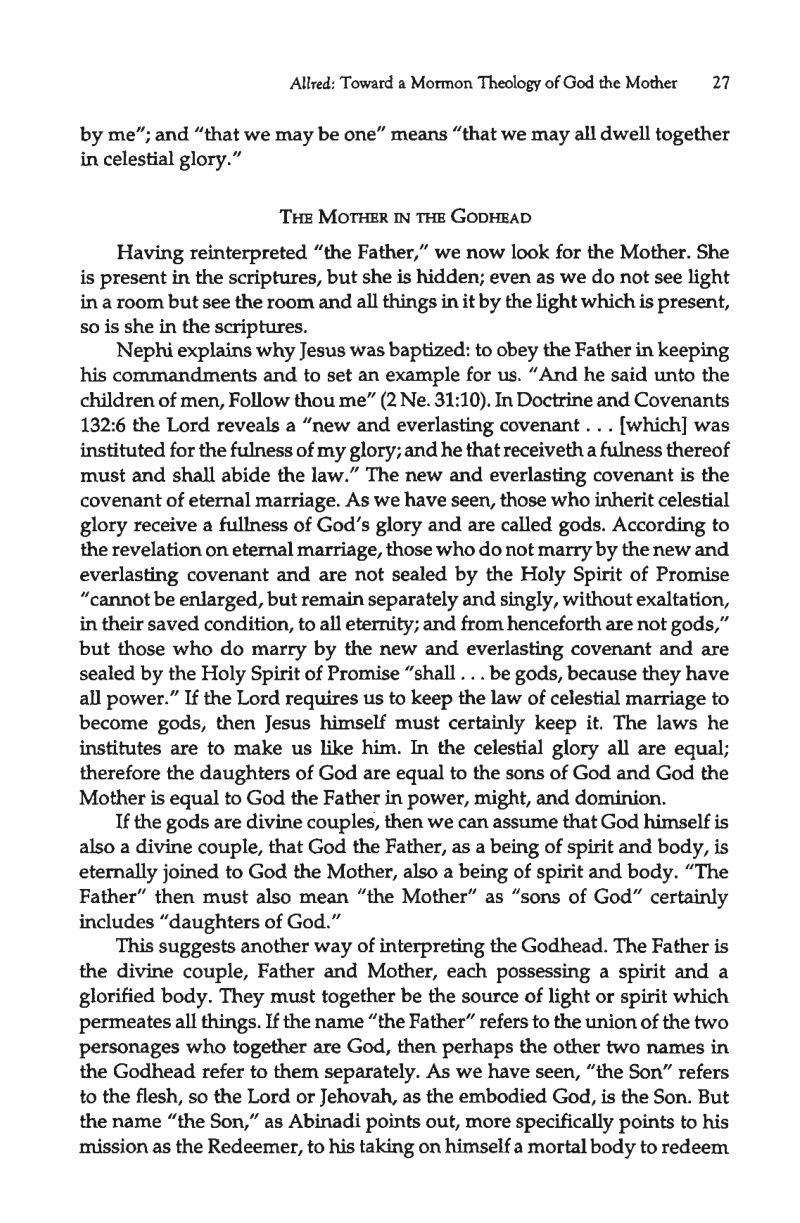Janice Allred speculated about the connection between Heavenly Mother and the Holy Spirit.
- Type
- Academic / Technical Report
- Source
- Janice Allred LDSCritic
- Hearsay
- DirectSecondary
- Reference
Janice Allred, "Toward a Mormon Theology of God the Mother," Dialogue: A Journal of Mormon Thought. 27, no. 2 (1994): 27–28
- Scribe/Publisher
- Dialogue: A Journal of Mormon Thought
- Audience
- The Academy
- Transcription
This suggests another way of interpreting the Godhead. The Father is the divine couple, Father and Mother, each possessing a spirit and a glorified body. They must together be the source of light or spirit which permeates all things. If the name "the Father" refers to the union of the two personages who together are God, then perhaps the other two names in the Godhead refer to them separately. As we have seen, "the Son" refers to the flesh, so the Lord or Jehovah, as the embodied God, is the Son. But the name "the Son," as Abinadi points out, more specifically points to his mission as the Redeemer, to his taking on himself a mortal body to redeem us from sin. Perhaps, then, the Holy Ghost is the name of the Mother which refers to her work among us in mortality.
One objection that has been made to the suggestion that the Holy Ghost is the Mother is that the Holy Ghost is a personage of spirit but the Mother must have an immortal, glorified body as the Father does. Indeed, this same objection is likely to be raised against the idea that Jesus is God the Father. If Jesus is God the Father, it will be argued, then he must have had an immortal, physical body before he took on himself a mortal body. But many Mormons will object that the scriptures teach that the resurrected body and spirit are inseparably connected, so Jesus must have been a personage of spirit before he became a mortal man and thus he could not have been God the Father.
- Citations in Mormonr Qnas
The B. H. Roberts Foundation is not owned by, operated by, or affiliated with the Church of Jesus Christ of Latter-day Saints.

